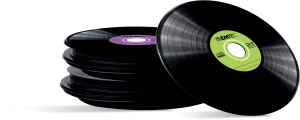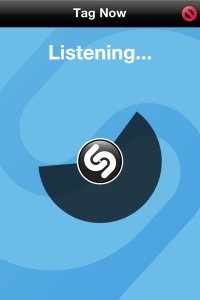Sourcing the music you play in your DJ sets isn’t just about searching one well-known website to find what’s hot in the DJ charts.
If you’re serious then it is important to keep a wide range of content on your musical radar and then reconstruct those influences into a craft of your own.
 No matter where you go to source your new tracks, on your next music hunt there’s some certain rules of thumb to bare in mind to save your collection and your wallet.
No matter where you go to source your new tracks, on your next music hunt there’s some certain rules of thumb to bare in mind to save your collection and your wallet.
Firstly, you should never buy a track that you don’t actually like… ever! We’ve all been there, you spend your hard earned cash on the music that you think your audience wants to hear but then you find yourself out of credit when you go to download the tracks your actually into. There’s no point buying every remix on a new P when you know only one of them fits your personal style. How can you expect to craft your path as a musical tastemaker if you are merely playing the status quo?
 Explore way beyond the Beatport Top100! This one is pretty self explanatory, while Beatport and similar websites are huge resources for finding and downloading new tracks it’s far too easy to be lazy and just rely on these services. If you are passionate about your music then your weekly track hunt should consist of more than 2 hours logged into Beatport one evening scouring the latest DJ charts. You are exposed to music on a daily basis, think of your quest for sourcing music a never ending pastime.
Explore way beyond the Beatport Top100! This one is pretty self explanatory, while Beatport and similar websites are huge resources for finding and downloading new tracks it’s far too easy to be lazy and just rely on these services. If you are passionate about your music then your weekly track hunt should consist of more than 2 hours logged into Beatport one evening scouring the latest DJ charts. You are exposed to music on a daily basis, think of your quest for sourcing music a never ending pastime.
You can easily keep a record of your music research by using the notes app on your phone to write down everything you hear when your hear it. Then when you get chance to actually sit down at your computer or visit the record store you’re already fully loaded with a shortlist of tracks.
Try and make it a regular and effortless process. You will come into contact with music everywhere you go on a daily basis but you can structure your activities to expose your ears to as much new stuff as possible. It almost goes without saying but if you are (or want to be) a club DJ then make sure you’re a regular at your local clubs. You’ll hear what other DJ’s are playing and gain an advantage on the competition by forming a vision to differentiate yourself.
 Make good use of the apps you already have built in to your phone. Shazam lets you quickly find out the name of a song that is currently playing by pressing a single button on your handset. Within seconds you’ll get the artist and song title. Even better, it’s now integrated with the Beatport catalogue so it’s even better at recognising electronic music. (and it now works with Siri on iPhone so you can literally just ask “What song is that?)
Make good use of the apps you already have built in to your phone. Shazam lets you quickly find out the name of a song that is currently playing by pressing a single button on your handset. Within seconds you’ll get the artist and song title. Even better, it’s now integrated with the Beatport catalogue so it’s even better at recognising electronic music. (and it now works with Siri on iPhone so you can literally just ask “What song is that?)
When you visit the cinema are you thinking about the film score? Hannah, the 2011 action thriller features a score composed by the British big beat duo, The Chemical Brothers. You can discover music from movies and tv shows on websites like tunefind.com, heardontv.com and televisontunes.com
Time spent playing video games isn’t wasted either, Grand Theft Auto 5 has 15 different in-game radio stations featuring a huge variety of well sourced music from Dr. Dre to Shadow Child. If you find something you like the sound of whilst robbing a bank in GTA or scoring a hat-trick in Fifa then note it down on your phone and save for later. If you forget to grab your phone to Shazam then you can browse an archive of video game songs at gamethemesongs.com.
Stop fast forwarding the TV adverts, they’re actually designed to have music that is catchy, slightly obscure & have mass audience appeal. What could be better for playing in your DJ set? What’s more, the companies spend hundreds of thousands of $$$ doing the research for you! There’s now a fair few websites dedicated to categorising TV advert songs and you’re probably heavily underusing them. Be a little different and check out TV Ad Music, What’s That Called and Ad Tunes Forum.

Of course, it’s easy to actually forget about those around. Your friends probably do something towards influencing your own musical tastes so don’t be scared to ask them for recommendations. (Your Facebook feed will constantly be telling you what your friends are listening too anyway)
Stay tuned for the next in our DJ music mini series on where to look, how to choose and how to build a collection you are actually proud of without just getting paralysed by a matrix of filenames. Next up we’ll be looking at the sources you have in your arsenal to find the tracks you like before anyone else.
How do you currently source your tracks? Do you use any of these methods or do you have your own strategy not mentioned here? Tell us in the comments below…
